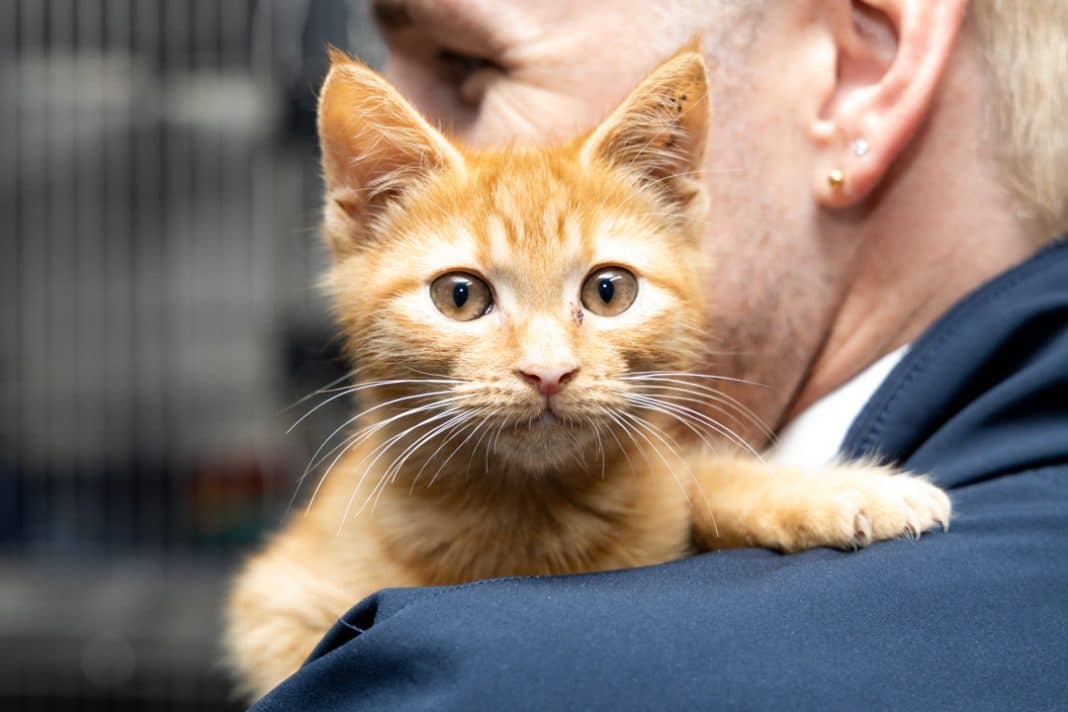What happens when fundraising isn’t making as much as it used to? Even though the team at the RSPCA ACT has been able to be in surplus in the last couple of years, they are aware their fundraisers aren’t generating as much as they once did.
Reassured that they will be able to survive the next five to 10 years, the team remains optimistic that if they put their heads down and work at it, they will be able to gain their much-needed funds in the years to come.
For example, one of the charity’s biggest fundraisers previously raised over $100,000 per annum. This year, Cupcake Day in the ACT only raised $20,211.25 from 93 fundraisers and 32 teams. Usually earmarked for the second half of August, people can now get in on the cupcake fun on any day of the year.
“I think Covid had taught us a lot of creativity and how to do things differently. The event itself, the multitude of events, are really important for us in two ways: it helps us raise awareness and get connection and engagement, but it also helps us raise funds,” says Michelle Robertson, RSPCA ACT CEO.
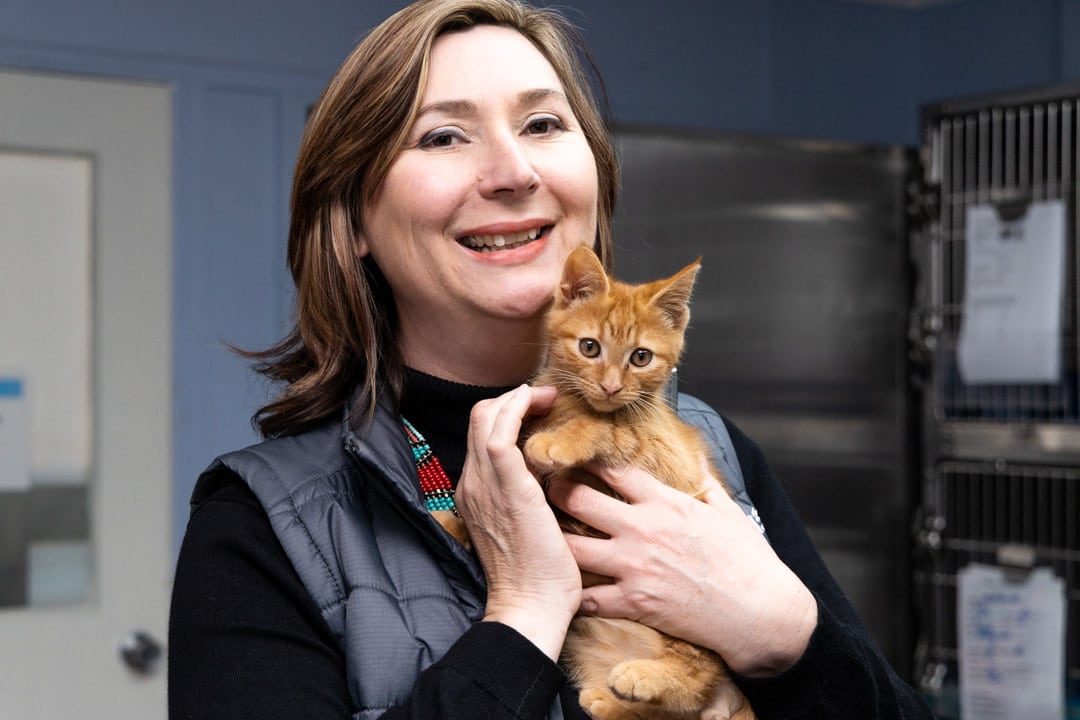
According to Ms Robertson, there could be multiple reasons the fundraiser no longer generates as much as it used to. Not only has the event been running for many years so the novelty may have worn off, but she says there is a lot of need in the community right now. With the cost of living continuing to rise, affordability is a real issue, however, organisations like the RSPCA are heavily reliant on donor funds.
“It goes 100 per cent to looking after the animals. It is looking after them, it is feeding them, it’s making sure all the work that we do in the vet clinic, it pays for electricity water, everything goes straight back. That’s all we do, we care for and protect animals, that is where the money goes,” she says.
The animal welfare charity is having to be in a near-constant fundraising cycle. The recent Give to Get Them Home fundraiser, which sees generous donors match any contributions made in a 24-hour period, raised over $120,000 for the ACT shelter.
Another new event being held across the nation this month is Rescue Run. This peer-to-peer fundraiser sees participants walk, run, and skip a distance of 56km, representing the 56,000 reports of animals in danger the RSPCA responds to each year.
The ACT Branch will also host Drag Bingo this Friday night, 14 October, at the Lotus Room at Casino Canberra from 7pm. The over-18s event will have fabulous prizes, an auction, and a lip-sync battle. Tickets are available via the RSPCA ACT website.
The pandemic has not only played a massive role in animal adoptions, but also in the number of animals being surrendered. When people bring an animal into the service, they list the reason why. Consistently, the top two reasons are unwanted or too many animals, and the physical or mental health of the person surrendering the animal. But it is the number three reason that has Ms Robertson concerned, and that is ‘affordability’.
“Covid broke our economy, and these are some of the consequences of it. People are struggling, and it is heartbreaking that people have to surrender their animals because they can’t afford them. It is just absolutely awful,” she says.
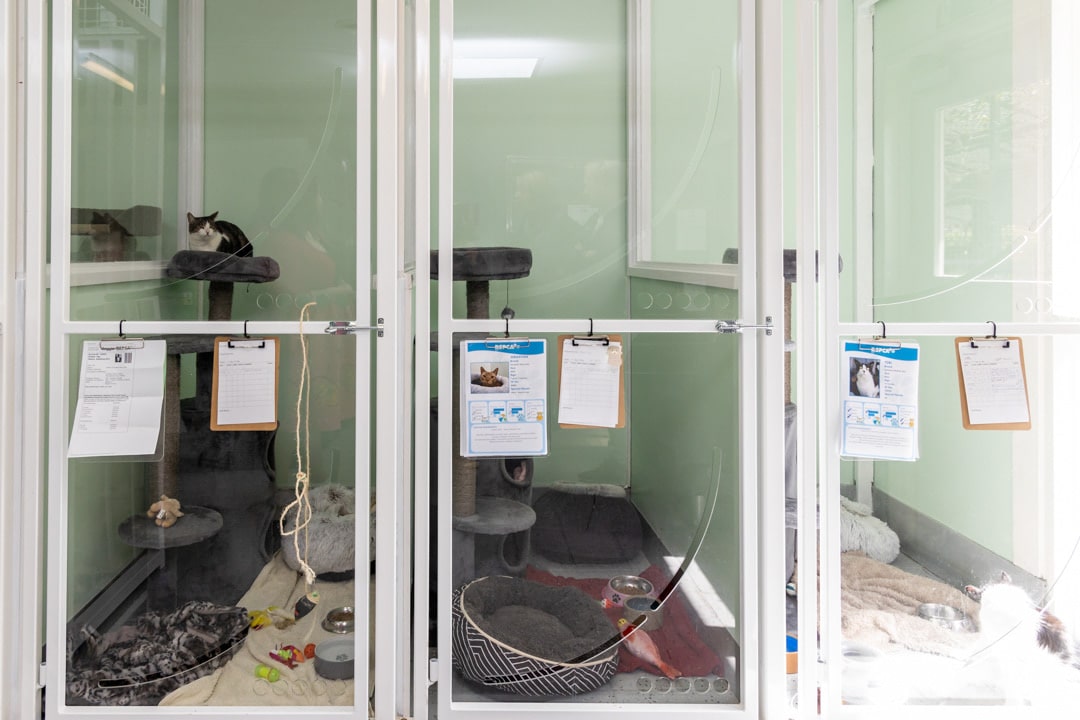
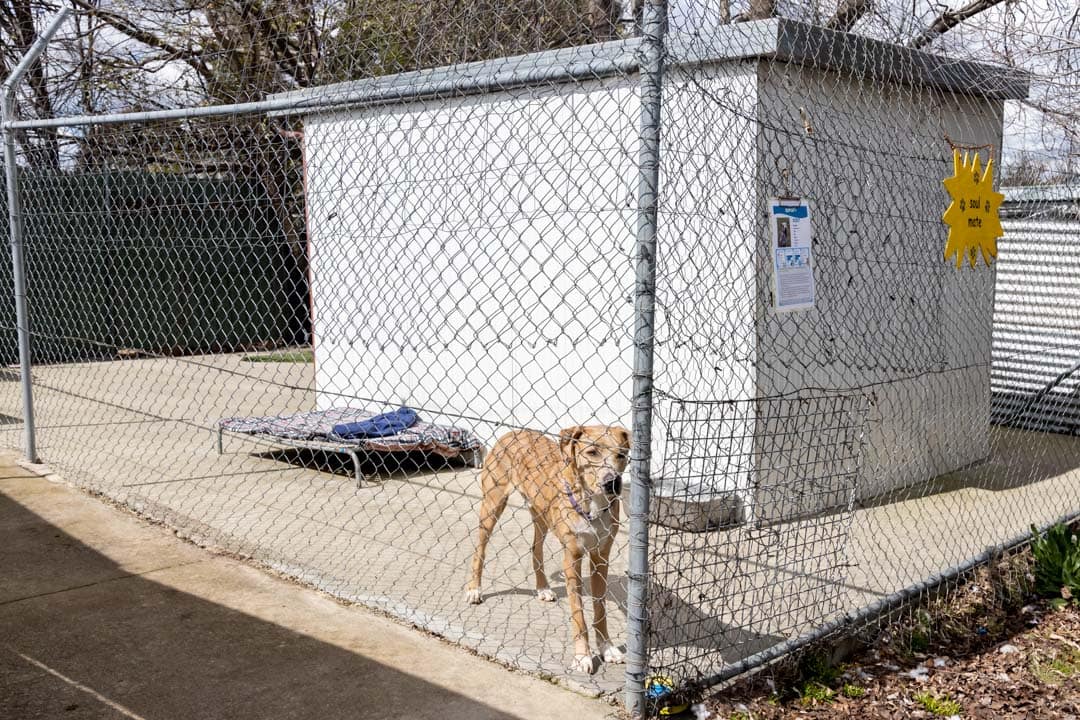
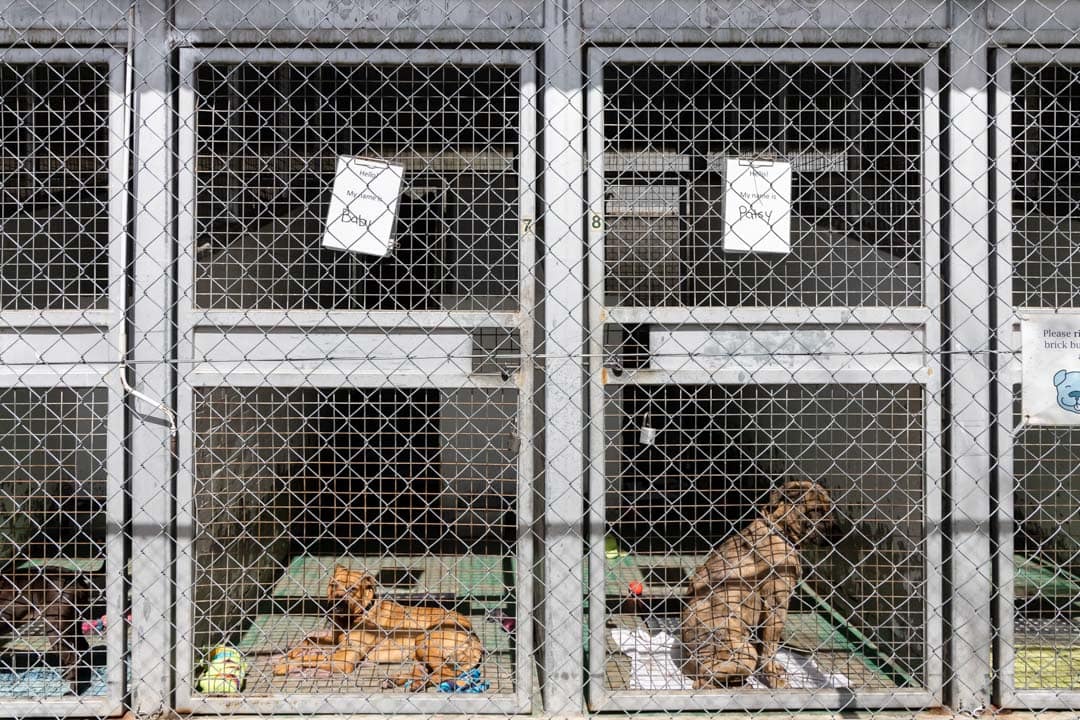
The organisation doesn’t receive government grants; over 65 per cent of its revenue comes from donations. The local government subcontracts RSPCA ACT to take in stray cats as there is no local council that accepts them. This and the small amount they receive for inspectorate services only amounts to about 12 per cent of the yearly income. Ms Robertson says the remaining balance is covered by the services they offer, such as cat boarding.
“We do a dog training school. Although that doesn’t really make money, it is something we feel is really important, it is part of that responsible pet ownership. So, it breaks even,” she says.
The inspectors respond to calls of suspected neglect cases or animals in danger. One litter of puppies came to them after the dog’s owner had passed away without anyone knowing about their pet. Ms Robertson doesn’t want to consider what would have happened to them if they weren’t made aware of their presence.
“I wish we didn’t have to exist because then it means all animals are loved and cared for in home and there are no problems. But there are problems, there are significant problems, and that is why we exist, and in order to exist, we need fundraising.”


Another concerning trend the organisation is seeing is that the cats and dogs being surrendered or collected by the inspectors have significant health problems, ranging from starvation to obesity, tumors, and everything in between.
“Multiple surgeries generally seem to be the norm, and again, that costs money. We have a vet clinic, but we can only do so much in house, a lot of specialty things we have to send out. The surgeries we can’t do we have to pay for.”
Along with donors, the RSPCA relies on its volunteer foster carers. The facility can house 80 to 90 animals at a pinch, but from November to August, they have had nearly 200 animals in care at any given time. Their foster carers, especially those who help out with the astronomical amount of cats coming through the doors, are invaluable to the organisation to be able to continue offering its services.
Ms Robertson says they are always on the lookout for more people willing to welcome an animal into their home, even if it is just for a short period.
“If we look at the number of animals in the past 20 years that have come through our doors, it would be 20,000 to 30,000 animals. If you consider not just those animals but the consequences and the impact on the community, I think it is catastrophic,” she says.
During the height of Covid, the Weston shelter was homing 60 to 90 animals each week, which has since dropped to 20 to 22 animals.
Ms Robertson is also concerned that the amount of time an animal remains with them is increasing. Dogs used to have a short stay of around 40 days with the team, now it is not unheard of for them to be there for six months.
“This environment is sometimes much better than what they are used to but it’s not a home. It’s not where we want them and sometimes, they can deteriorate. It is incredibly heartbreaking to see the dogs become really sad,” she says.
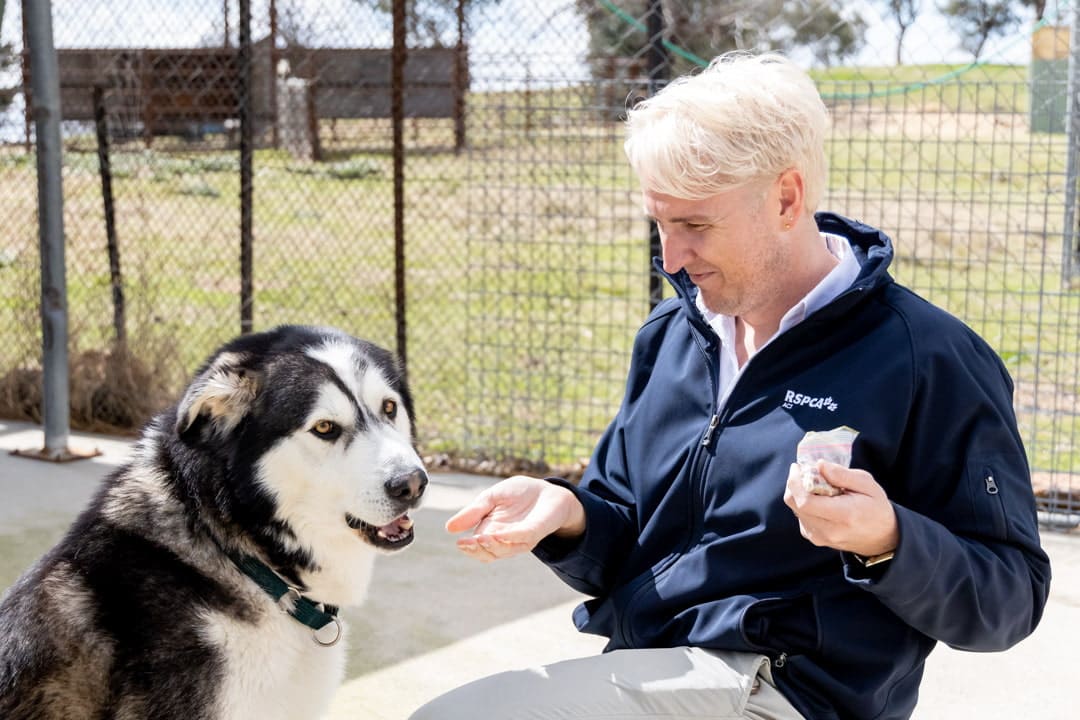
Currently, Champ the malamute is the longest guest at RSPCA ACT, having been at the shelter since the end of June and up for adoption since 27 July.
“They require a lot of exercise. We have a responsibility, and it is very difficult because it is that balance between not just finding a home but finding the right home.”
Even though she often fields criticism that the process is either too difficult or not thorough enough, Ms Roberston says she is proud of the low return rate because it means they are doing something right. They try to match each animal up with its perfect owner, however, this can sometimes be difficult because they have to trust the applicant is being honest.
“The more honest they are, the more we can say maybe not that particular dog, but maybe this one because that is going to go really well. It’s not because we judge, it’s because we want to make the right match,” she explains.
It isn’t all cats and dogs at the facility. Just under 3,000 animals are taken in each year including chickens, goats, horses, fish, and lizards. Ms Robertson says their strangest adoption came from a seizure made in a home with multiple different types of animals in need of care.
“There were yabbies. Yabbies that were not wild, they were living in a tank so we couldn’t let them loose to die. We adopted out about 15 yabbies, and we found homes for them all,” she smiles.
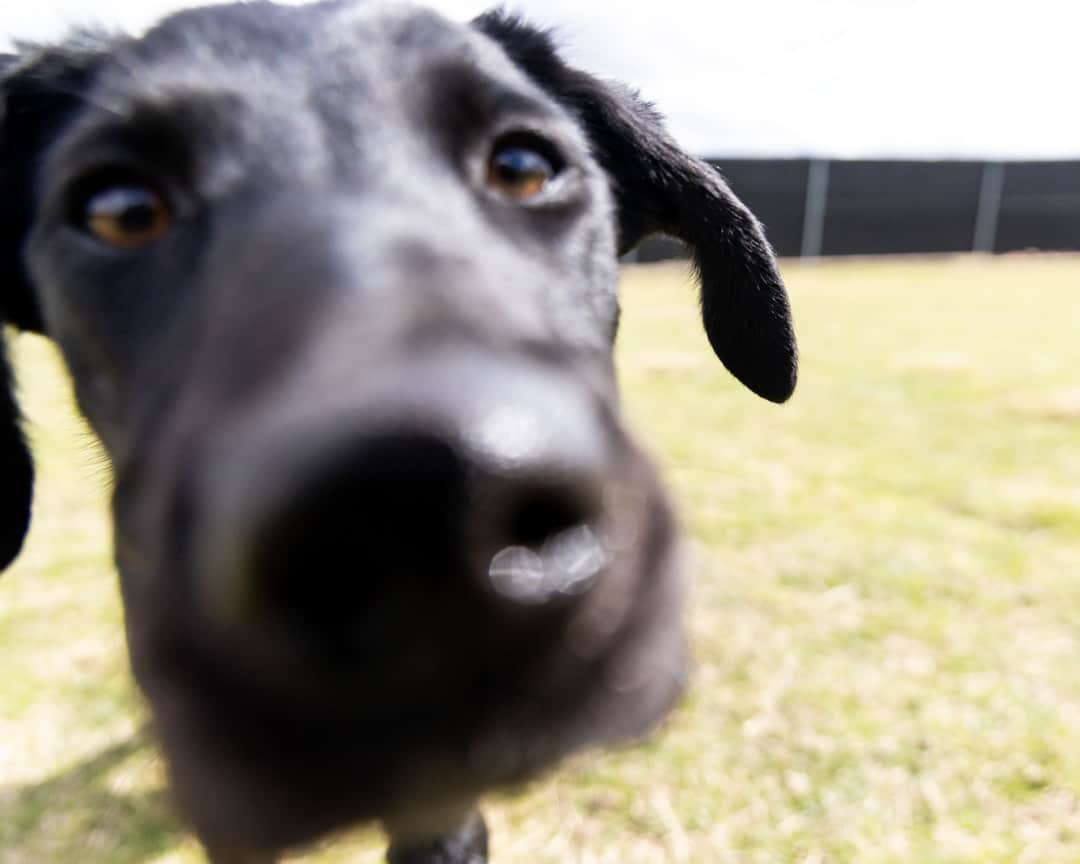

To adopt a pet for life or to find out more about how you can support RSPCA ACT, visit rspca-act.org.au
Canberra Daily is keen to hear from you about a story idea in the Canberra and surrounding region. Click here to submit a news tip.

